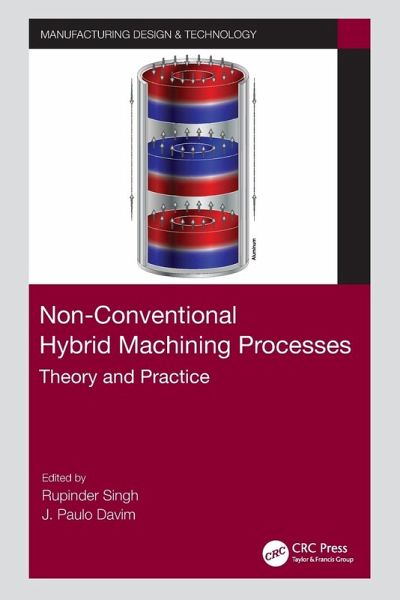Rupinder Singh received his Ph.D degree in Mechanical Engineering in 2006 from T.I.E.T Patiala, Masters of Technology (Production Engineering) in 2001 and Bachelors of Technology (Production Engineering) in 1999 from Punjab Tech. University. He is Chartered Engineer by Institution of Engineers (India) and UGC Research Awardee. Currently, he is Professor at the Department of Mechanical Engineering, National Institute of Technical Teachers Training and Research, Chandigarh (India). He has more than 20 years of teaching and research experience in Production and Industrial Engineering, with special emphasis in additive manufacturing, non conventional machining and casting. He has guided large numbers of Ph.D. and Master's students as well as coordinated 17 financed research projects. He has received several scientific awards. He has worked as evaluator of projects for international research agencies as well as examiner of Ph.D. thesis for many Indian universities. He is the Guest Editor for several International journals, books Editor, and Advisor for many international conferences. In addition, he has also published as author (and co-author) more than 20 monographs, 80 book chapters and 500 articles in journals and conferences (more than 250 articles in journals indexed in SCI (SCOPUS/h-index:31+/3626+ citations). J. Paulo Davim received his Ph.D. degree in Mechanical Engineering in 1997, M.Sc. degree in Mechanical Engineering (materials and manufacturing processes) in 1991, Mechanical Engineering degree (5 years) in 1986, from the University of Porto (FEUP), the Aggregate title (Full Habilitation) from the University of Coimbra in 2005 and the D.Sc. (Higher Doctorate) from London Metropolitan University in 2013. He is Senior Chartered Engineer by the Portuguese Institution of Engineers with an MBA and Specialist titles in Engineering and Industrial Management as well as in Metrology. He is also Eur Ing by FEANI-Brussels and Fellow (FIET) of IET-London. Currently, he is Professor at the Department of Mechanical Engineering of the University of Aveiro, Portugal. He is also distinguished as honorary professor in several universities/colleges. He has more than 30 years of teaching and research experience in Manufacturing, Materials, Mechanical and Industrial Engineering, with special emphasis in Machining & Tribology. He has also interest in Management, Engineering Education and Higher Education for Sustainability. He has guided large numbers of postdoc, Ph.D. and master's students as well as has coordinated and participated in several financed research projects. He has received several scientific awards and honours. He has worked as evaluator of projects for ERC-European Research Council and other international research agencies as well as examiner of Ph.D. thesis for many universities in different countries. He is the Editor in Chief of several international journals, Guest Editor of journals, books Editor, book Series Editor and Scientific Advisory for many international journals and conferences. Presently, he is an Editorial Board member of 30 international journals and acts as reviewer for more than 100 prestigious Web of Science journals. In addition, he has also published as editor (and co-editor) more than 150 books and as author (and co-author) more than 15 books, 100 book chapters and 500 articles in journals and conferences (more than 250 articles in journals indexed in Web of Science core collection/h-index 55+/9500+ citations, SCOPUS/h-index 60+/12000+ citations, Google Scholar/h-index 77+/19500+ citations).






